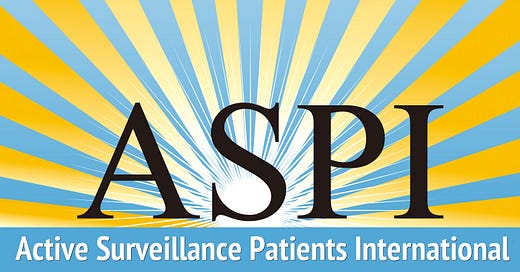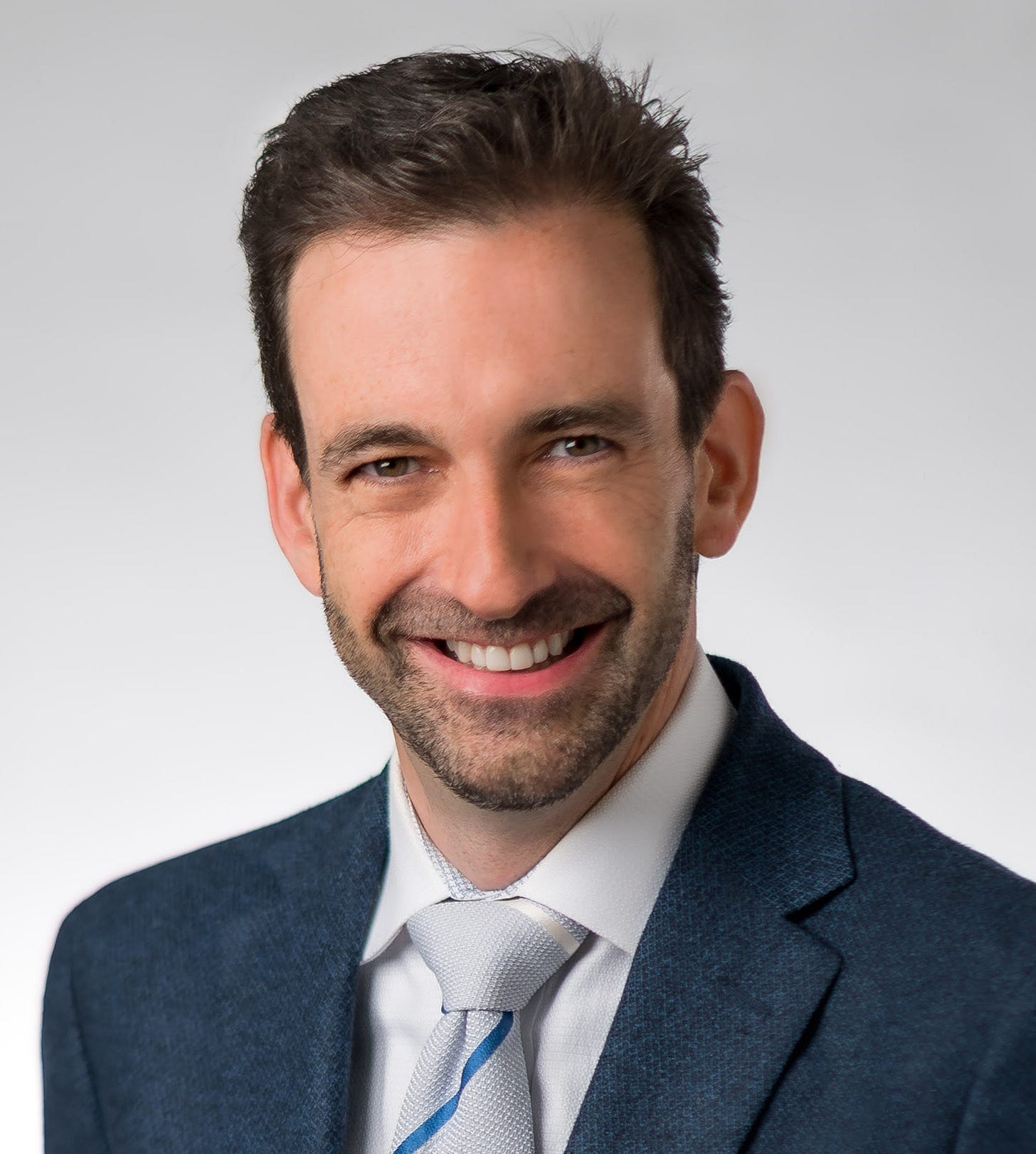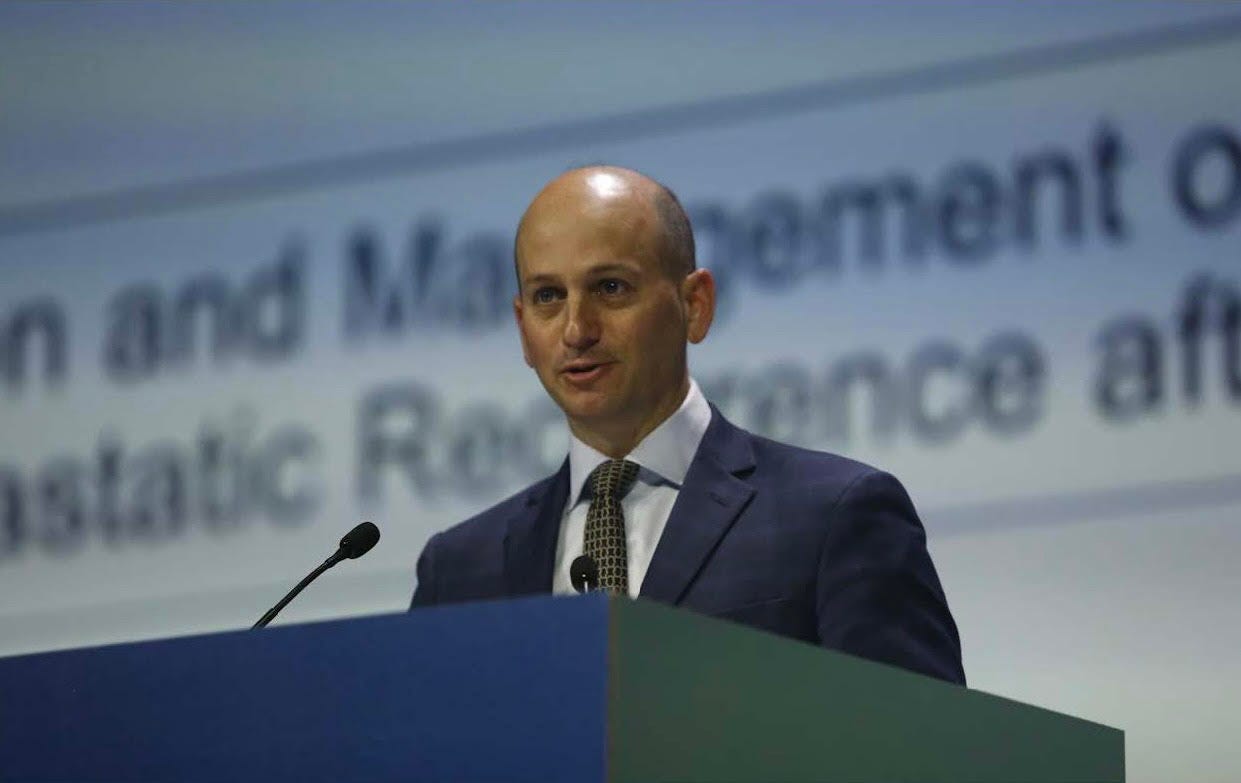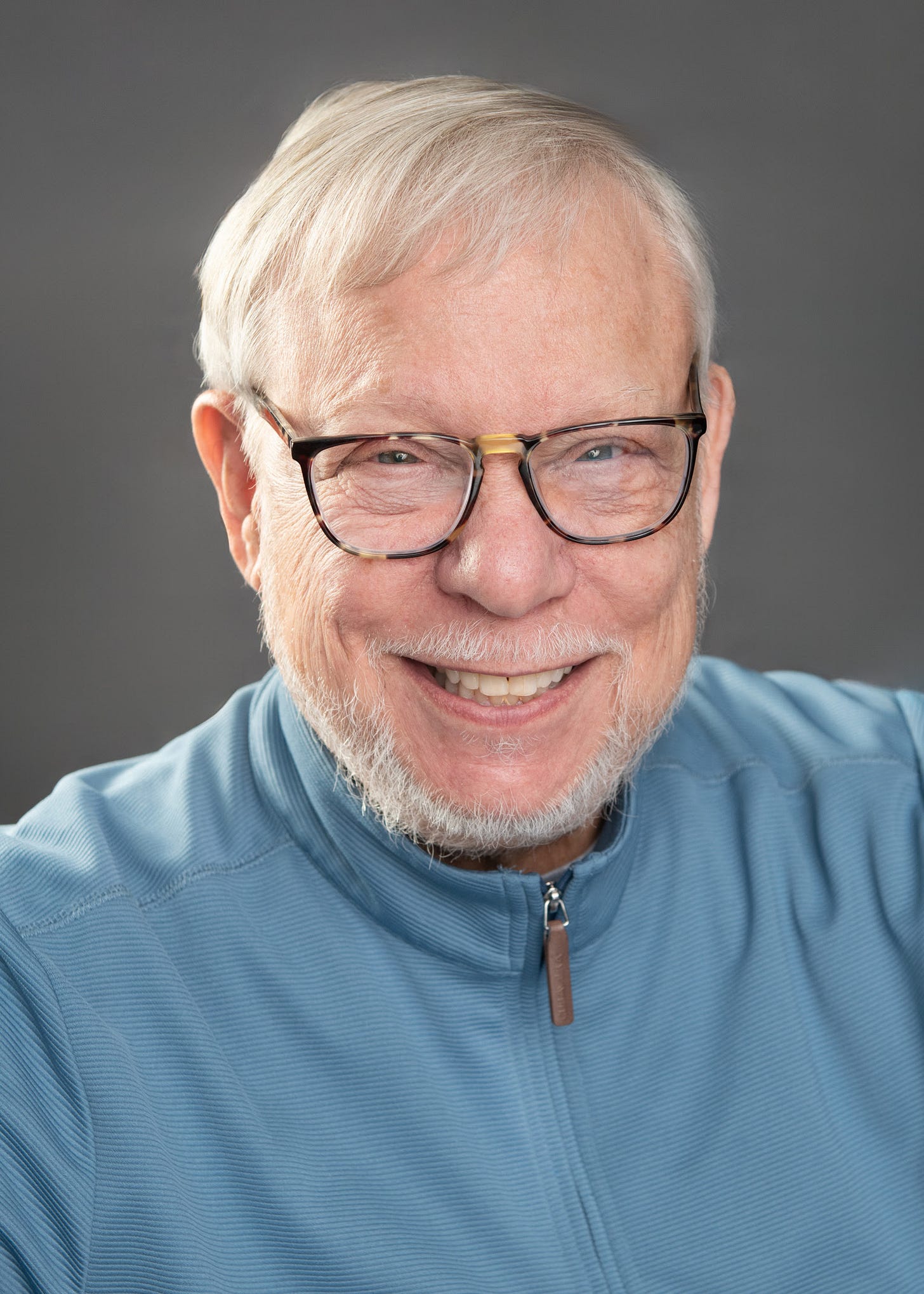ASPI announces annual awards for AS advocacy: Drs. Scholz, Cooperberg and Morgan honored--along with me again
By Howard Wolinsky
Active Surveillance Patients International announced Friday the winners of its annual awards for advocacy in Active Surveillance for low-risk prostate cancer.
The winners are:
—Dr. Mark Scholz, co-founder of PCRI and author of the book “The Invasion of the Prostate Snatchers.” This expose on the urology business gave me the courage to go on AS in 2010. Scholz won the coveted Chodak Award. The award is named for the late Dr. Gerald Chodak, a pioneering urology researcher who developed the idea for conservative management of low-risk prostate cancer. Dr. Chodak was a friend who guided my early AS journey. I recruited him as ASPI’s first medical advisor.
—Dr. Matthew Cooperberg, of UCSF, and Dr. Todd Morgan, of University of Michigan, long-time AS researchers and advocates. ASPI recognized them for reversing a policy from the National Comprehensive Cancer Network that downgraded AS as the preferred approach for AS patients and put it on a par with surgery and radiation. Check my reporting on this.
—Finally, ASPI, which I co-founded, honored me with their Thrainn Thorvaldsson Advocacy Award. They did this, ignoring my protestations. See story below.
Here’s the ASPI news release;
Announcing ASPI’s 2025 Award Honorees
Active Surveillance Patients International (ASPI), the first nonprofit founded by and for men on Active Surveillance for low-risk prostate cancer, is proud to announce the recipients of its 2025 awards.
These annual honors spotlight individuals who have made a lasting impact through research, advocacy, and patient support. Whether by challenging the medical status quo, reshaping national guidelines, or ensuring men are never alone in their diagnosis, each honoree has helped advance AS as a safe and evidence-based approach to care.
Scroll through for an overview of each Award and its recipient or visit ASPI’s Awards page to find the full details.
DR. MARK SCHOLZ
Chodak Award
Award Presentation: TBA (Summer 2025)
Named in memory of Dr. Gerald Chodak, a pioneer in conservative prostate cancer management, this award honors clinical leaders who have championed evidence-based care.
Dr. Scholz, co-founder of the Prostate Cancer Research Institute (PCRI) and author of The Invasion of the Prostate Snatchers, was awarded ASPI’s prestigious Chodak Award. As one of the earliest and most vocal advocates for Active Surveillance, Dr. Scholz has helped thousands of men avoid unnecessary treatment through education, outreach, and a patient-first approach.
Learn more about Dr. Scholz’s award and work >>
DR. MATTHEW COOPERBERG
Special Award for Advocacy
Award Presentation: June 26, 2025 – UCSF Helen Diller Cancer Center, San Francisco
Dr. Matthew Cooperberg receives ASPI’s 2025 Special Award for Advocacy in recognition of his leadership and innovation in defense of Active Surveillance.
When a change to the NCCN prostate cancer guidelines in 2021 removed AS as the preferred treatment for low-risk disease, Dr. Cooperberg swiftly organized a powerful, grassroots campaign to reverse it. His use of social media galvanized a “Twitterstorm” that united urologists, researchers, and patient advocates in calling for reform. Thanks to his efforts, the guideline was reversed within three months.
Learn more about the impact of Dr. Cooperberg’s advocacy >>
DR. TODD MORGAN
Special Award for Advocacy
Award Presentation: August 2, 2025 – MUSIC Summer Gathering, Michigan
Dr. Todd Morgan is being recognized with ASPI’s 2025 Special Award for Advocacy for his courageous stand during a pivotal moment in prostate cancer care.
In 2021, when the NCCN prostate cancer guidelines quietly removed Active Surveillance (AS) as the “preferred” option for low-risk disease, Dr. Morgan—then serving on the NCCN panel—was the lone voice in formal opposition. His principled stance helped initiate a movement that ultimately restored AS to its rightful place as the standard of care.
HOWARD WOLINSKY
Thrainn Thorvaldsson Patient Advocacy Award
Award Presentation: TBA (Summer 2025)
Named for ASPI co-founder Thrainn Thorvaldsson, the award’s first recipient, this award honors individuals who empower patients through advocacy, support, and education.
A co-founder of ASPI and longtime editor of the Active Surveillor Substack, Wolinsky was recognized for his tireless efforts to empower men with low-risk prostate cancer. From launching ASPI’s first virtual support groups to publicly sharing his own journey to avoid overtreatment, Wolinsky has become a vital voice in prostate cancer advocacy.
Learn more about Howard’s advocacy >>
How I accidentally won the ‘Triple Crown’ of advocacy for AS patients
By Howard Wolinsky
I am an accidental advocate.
I was a career journalist and medical writer. I was happy enough doing that for 40+ years.
Then, I got diagnosed with low-risk prostate cancer in 2010. (This month is my anniversary. I’ll have another story soon about 15 years on AS.) It changed everything.
I didn’t like the fear-based marketing approach taken by my first urologist trying to rush me into unnecessary surgery. Soon enough I discovered I didn’t like many of the other practices in the field, like germy transrectal prostate biopsies, which reportedly kill 2,000 American men a year. (I’ll be writing more on that soon, too.) I have championed the cause of renaming Gleason 6 as a noncancer.
So I did something I never did as a journalist. I began campaigning for change on behalf of my fellow patients using my gonzo journalism skills. We were taught in journalism school in the 1960s not to promote your own causes.
But in the internet era, journalism has changed. And I have managed to walk a tightrope between being a traditional journalist for Medscape, MedPage Today and other publications, while being an advocate at patient meeting and in TheActiveSurveillor.com newsletter. (I always disclose in straight news articles that I am an advocate.)
I started this newsletter, which is part advocacy and part straight news.
Four years ago, I help start ASPI’s awards program never envisioning I would be considered for an award. When I was nominated for the first time a few years ago, I was able to divert the committee. But this year, the awards committee put down its foot and insisted. FYI, I recused myself from their deliberations. This is all on the up-and-up. No silver crossed any palms.
Active Surveillance Patients International announced Friday—that despite my efforts to stop them—it is awarding me the Thrainn Thorvaldsson Award for Advocacy.
I’m honored and humbled.
Thrainn and I came up with the idea for ASPI in 2017 after I made news for reading the riot act in an impromptu rant to several thousand prostate cancer experts at a conference in Orlando for not listening to their patients.
I had been scheduled to be the first patient to speak to American Society for Clinical Oncology’s Genitourinary ASCO Genitourinary Cancers Symposium. Then, they forgot me. As th clock ran down, I grabbed the mic and asked what was wrong with the optics of their forgetting a patient.
Word got out.
I became an underground figure for patients with prostate cancer who were unhappy with their care. I didn’t know about this until Thrainn contacted me. He heard about my broadside in Orlando at the meeting in LA of Prostate Cancer Research Institute (PCRI).
Years earlier, in Iceland, Thrainn had started the first AS-only support group. There were support groups before that but they included patients with the full range of cancer. He contacted me at Northwestern University’s storied Medill School of Journalism, where I taught medical journalism. We cooked up the idea for ASPI.
Mark Lichty, Gene Slattery, and Bill Manning helped form ASPI.
I am especially honored that the award is in Thrainn’s name. He was the first recipent two years ago—before it was named for him.
This is the third such recognition I have received lately. I can say I have received “the Triple Crown” of advocacy for AS.
(Another Triple Crown winner.)
The first award came from the Prostate Cancer Research Institute. The best part was when Alex Scholz, CEO of PCRI, who calls me “Legend” and describes me as “the first prostate cancer influencer.”
Influencers are better known in the beauty, fashion, fitness, travel, and food businesses—not for advocacy on behalf of patients on AS. I hear influencers get a lot of credibility and loads of freebies.
I’m still waiting for freebies. What would a prostate cancer advocacy influencer get anyway? I’m dreaming of a biparametric MRI covered by Medicare.
The second came from Cancer Health Magazine, which named me one of the 25 Cancer Health 25 patient advocates.
Now, ASPI has weighed in. I’m blushing.
These awards will help spread the word on AS and prostate cancer.
But honestly, I don’t think patient advocates don’t get into the “advocacy business” for the “glory” or attention.
Their idea is to help people, people like themselves with a specific condition, like low-risk prostate cancer. They see a void and try to fill it.
I helped start ASPI and also with Rick Davis and Mark Lichty the virtual support group at AnCan for AS. These have been successes, drawing strong participation.
Thrainn and I are doing it again with CaveMen, small virtual support groups of 8-12 patients stratified by Gleason score and geography.
Also, with Chicago guys on AS, I have helped launch the Chicago Area Active Surveillors, an in-person AS support group.
I’m one of the Johnny Appleseeds of advocacy for patients on AS. I have plenty more advocacy ideas. I made a to-do list years ago and am still working on it at least for now.
The goal in all of this to increase awareness of AS, provide support, improve the experience of patients on AS, and to inform AS patients of news on diagnosis and treatment.
ASPI is planning some sort of virtual event in my honor. Details to come. I hope you can attend.
I am proud to be in the company of this year’s ASPI Awards winners. (See above.)
Please answer a survey on genetic testing and PCa
At the end of July, I will be moderating a program for ASPI on the importance of genetic testing for prostate cancer patients. Can you respond to this survey: https://forms.gle/Uv9d5gaZYHadZ5Qh9
Cracking the code on pathology reports: Helping patients navigate medicalese top ensure better care
By Howard Wolinsky
The next webinar from Active Surveillance Patients International will be touching on how many patients don’t understand pathology reports or even Gleason scores—and what can be done about it,
So come, please, and maybe share your experience with pathology reports and medicalese.
Cathryn J. Lapedis, MD, MPH, a Clinical Assistant Professor of Pathology at Michigan Medicine in Ann Arbor, has found in her research that patient-centered pathology reports (PCPR) can help patients understand the reports.
She will be the featured speaker at the ASPI webinar from noon to 1:30 p.m. on Saturday, June 28.
Please register for the meeting here.
Lapedis was the lead author of a recent study in JAMA that found a 93% comprehension of patient-centered pathology reports compared with 39% of those who read a report from the University of Michigan and 56% reading a pathology report from the Veterans Administration.
While 93% of participants who received the PCPR accurately identified that the report showed prostate cancer, only 39% of those who received the university report and 56% of those who received the VA report did so.
She also looked at how these patients interpreted Gleason scores: 84% reading specially prepared patient-centric reports understood their scores vs 48% for the university group and 40% for the VA group.
She has fellowship training in medical renal and gastrointestinal pathology. Her research centers on rethinking the way pathology results are communicated to patients and the healthcare system. She completed an in-depth analysis of key stakeholders’ attitudes towards patient-pathologist interactions, and is currently piloting early interventions in patient-centered pathology communications.
Please send questions in advance to: contactus@aspatients.org








I knew nothing about PC, or AS, or even medical journalism, save maybe Alex Berenson. When I needed information, I found you. Exactly what my husband and I needed, an education. Thank you.
May I suggest you get a "Kofi" button. I read a lot of substact, and have free subscriptions to many, as well as just reading different writers. I have paid for only 3 subscriptions. But, I have given out some "kofi". It is a way to "tip" for a great article without buying a subscription. You can tip $2 $5, $10. What ever you want. It is an easy way for a reader to say thank you for a great article. It might be a decent additional income stream. I'll buy you your first "Kofi".
Well deserved. Congrats.